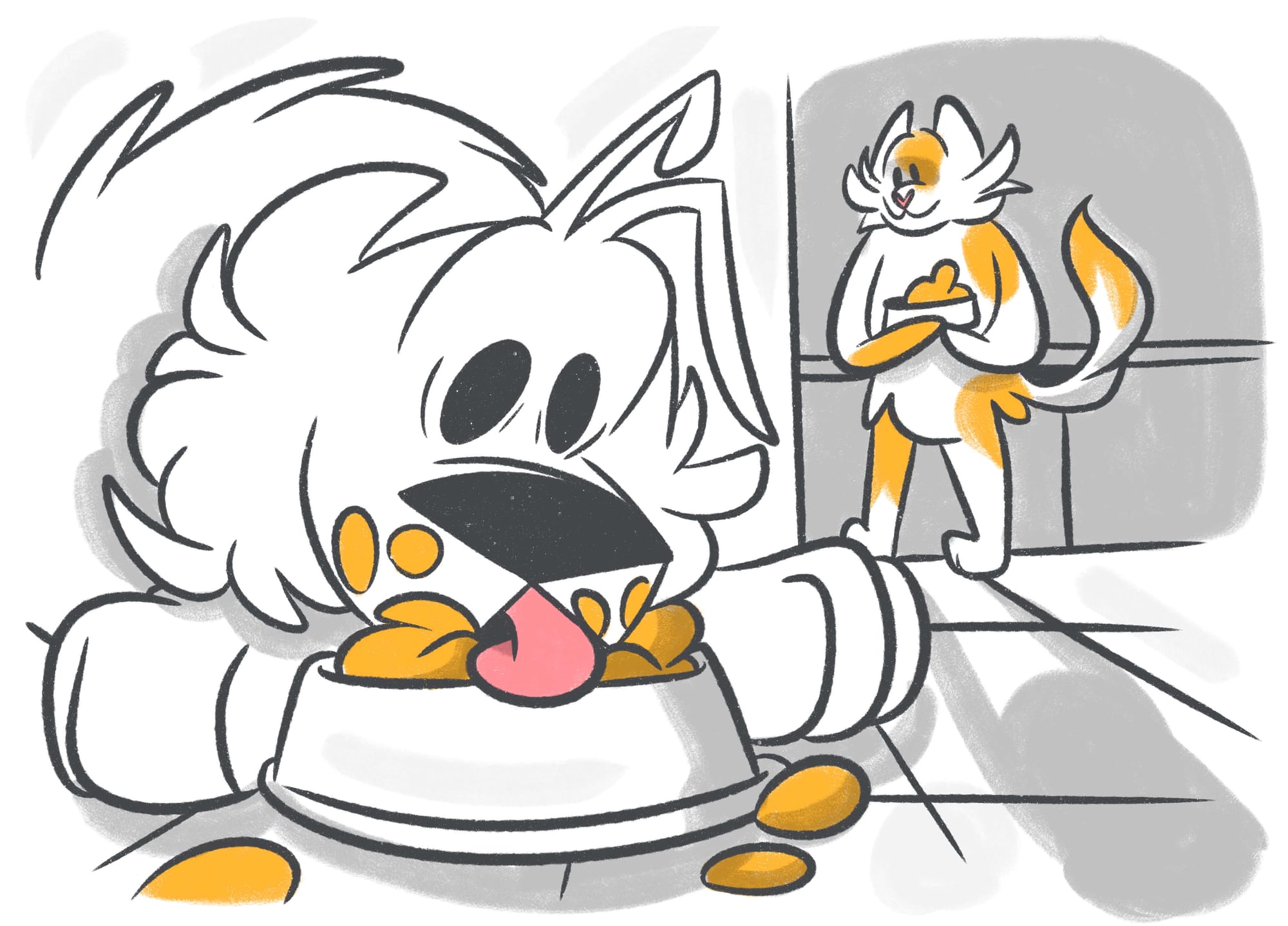A gastrointestinal blockage is one of the worst nightmares for dog owners. In this article, I, Ivana Crnec, DVM, will explain several vet-recommended home remedies for dogs with stomach and intestinal blockages.
Stop Googling - Ask a Real Vet
Content:
- Dog Intestinal Blockage Timeline
- Signs of Blockage in Dogs
- How to Clear Intestinal Blockage in Dogs
- FAQs
- Conclusion
Dog Intestinal Blockage Timeline
Dog intestinal blockage is a progressively worsening situation. Potentially fatal complications occur within three to four days in dogs with complete blockages.
The timeline is slightly extended for dogs with partial obstructions with some blockages staying for a week or even more.
Signs of Blockage in Dogs
“If your dog is vomiting but not producing any stool — this is a strong indication of an intestinal blockage,” says Veronica Higgs, DVM, in an article for PetMD.
Other signs include:
- Persistent retching
- Abdominal pain and bloating
- Loss of appetite
- A small amount of bloody and watery stool
- Dehydration
- Weakness and collapse
A dog in distress is a potential escape risk. To promote maximum safety, ensure your dog is wearing a GPS tracker at all times.
How to Clear Intestinal Blockage in Dogs
Intestinal blockage can be fatal and warrants an emergency trip to the vet’s office and, in many cases, surgical treatment.
If the vet says there is no need for surgery and the dog is likely to pass the blockage on its own, try home remedies. Popular options include:
- Hydration Support: Entice the dog's water appetite to ensure hydration. A normal water content in the bowels is vital for normal stool formation and potentially passing down a blockage.
- High-Fiber Foods: Foods rich in fiber fuel the healthy gut microbiome and add bulk to the stool, helping eliminate obstructions. Examples include pumpkin puree (ideally homemade), sweet potatoes, and wheat brans.
- Bland Diet: A dog with an obstruction still willing to eat can be fed small portions of a bland diet. A bland diet is a combination of white chicken meat and rice in a 2 to 1 ratio.
- Probiotics: Probiotics are live bacteria and yeasts that support healthy gut function. Probiotic supplements for dogs are available in various forms and are easy to use.
- Herbal Remedies: Certain herbal remedies like turmeric and ginger have an anti-inflammatory and soothing effect on the dog's gastrointestinal tract. They do not directly help with the obstruction but can relieve the symptoms.
- Light Exercise: Moderate physical activity supports healthy gut motility. Talk to your vet to determine what is moderate for your dog's breed, age, and physical condition, as too much exercise has a negative impact.
Mainstream surgical treatment of gastrointestinal blockages is costly. To minimize the expenses, consider the Petcube Emergency Fund.
It covers up to $3,000 for emergency vet bills, offers 24/7 access to online vets, and comes with a 27% discount if you use this link.
FAQs
How Do I Know if My Dog Has a Blockage?
You may suspect your dog has a blockage if they are vomiting but not producing any stool. However, for a definitive diagnosis, you must see the vet.
How Much Does Dog Intestinal Blockage Surgery Cost?
A dog intestinal blockage surgery can cost anywhere between $2000 and $10.000 depending on where you live, who performs the procedure, and the dog’s overall status.
Conclusion
Gastrointestinal blockage in dogs is a fast-advancing and potentially life-threatening situation. Most dogs are treated surgically, but if the vet recommends a non-surgical approach, owners can try home remedies.
Was this article helpful?
Help us make our articles even better









